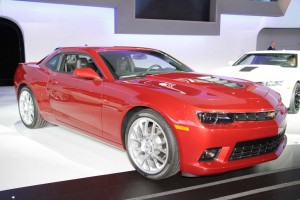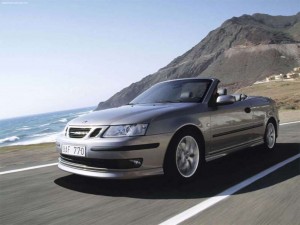General Motors is ending the week with yet another four recalls, including one with echoes of the defective engine switch problem that has already resulted in the recall of 2.6 million GM vehicles and which has been linked to at least 13 deaths.
By far, the largest of the four new recalls involves the Chevrolet Camaro, 511,528 of which have been sold in North America since the start of the 2010 model-year. According to GM, a driver sitting close to the steering wheel can inadvertently bump the key fob and knock the ignition switch out of the “On” position, resulting in a loss of vehicle power.
GM has separately announced three recalls covering 69,839 vehicles sold in North America as far back as 2004.
“Discovering and acting on this issue quickly is an example of the new norm for product safety at GM,” Jeff Boyer, the new vice president of GM Global Safety, said in reference to the Camaro problem.
In fact, the issue was discovered during testing related to the ignition switch problem that has led to a wide series of recalls at GM and which has put the maker under the microscope for its handling of safety-related problems. A total of 2.6 million vehicles have so far been recalled because an ignition switch can inadvertently be jostled out of the “On” position, in some cases simply by driving down a rough road.
At least 13 deaths have been linked to the problem, though some reports connect the issue to 70 or more fatalities. GM is setting up a new victim’s compensation fund. But it is also facing a series of investigations, including one by the U.S. Justice Department that could result in criminal charges. Fifteen employees have been disciplined as a result of a decade delay in ordering a recall, five more have been disciplined.
(GM preparing compensation fund for ignition switch victims. Click Here for the latest.)
In the case of the Camaro, the maker insists the ignition switch itself “meets all GM engineering specifications and is unrelated to the ignition switch used in Chevrolet Cobalts and other small cars included in the (earlier) ignition switch recall.”
It’s the design of the key itself which is the problem. Like many other manufacturers, GM has used a design in which the key is hidden within the fob, and can pop out with the push of a button. But the size and shape of the fob is such that a knee bumping into it can inadvertently move the key out of the “On” position. If that happens, the vehicle can immediately lose power, resulting in a loss of power steering and brakes, while the Camaro’s airbag system will be disabled.
“At this time, NHTSA has not seen a defect trend across other vehicles involving the use of switchblade keys,” NHTSA said in a statement. “The agency is in contact with automotive manufacturers and suppliers regarding airbag design and performance related to the position of the vehicle ignition switch and will take appropriate action based on the agency’s findings.”
GM says it knows of four injuries that “may be related to this condition.”
(GM CEO Mary Barra promises no more major safety problems, Click Here for more.)
In all, the Camaro recall covers 464,712 of the cars sold in the U.S., the rest having gone to Canada and Mexico, as well as a handful of export markets outside North America.
GM says it will replace the key fobs with another design that won’t be vulnerable to being bumped.
The basic key fob design is similar to that used by a number of other automakers. The National Highway Traffic Safety Administration has not yet responded to a query as to whether other manufacturers have experienced similar problems as GM has had with the Camaro.
Separately, the maker will recall:
- 28,789 Saab 9-3 convertibles produced during the 2004 to 2011 model-years because an automatic tensioning cable in the driver’s seatbelt retractor can break. The cable is designed to tighten a loose belt in the event of a crash. Because separate parts were used, the 9-3 sedan is not covered by the recall;
- 21,567 Chevrolet Sonic minicars equipped with a 6-speed automatic transmission and 1.8-liter engine because a manufacturing defect can cause a transmission turbine shaft to fracture and limit the gearbox’s ability to shift;
- 14,765 Buick LaCrosse sedans because of a wiring defect that can corrode and break. That could allow the vehicle’s power windows and sunroof to operate even if the engine is turned off and the driver is not in the vehicle.
Owners will be notified by mail and repairs for the four defects will be made at no charge.
(Toyota forced to re-recall vehicles for airbag problem. Click Here for the latest.)
The latest service actions bring to 38 the number of recalls General Motors has announced since the beginning of 2014, affecting 14.4 million vehicles sold in the U.S., and 16.5 million sold worldwide.
GM CEO Mary Barra is expected to return to Washington in the coming weeks to discuss the latest developments in the ignition switch debacle with House and Senate members conducting hearings on the issue.
Despite the widely covered story, GM sales have been increasing faster than the pace of the overall U.S. automotive recovery this year.



If a driver has their knees up against the steering column – perhaps for their own safety they should learn how to properly sit in an auto and how to operate it safely? No company can or should be expected to compensate for irresponsbile or unsafe driver behavior.